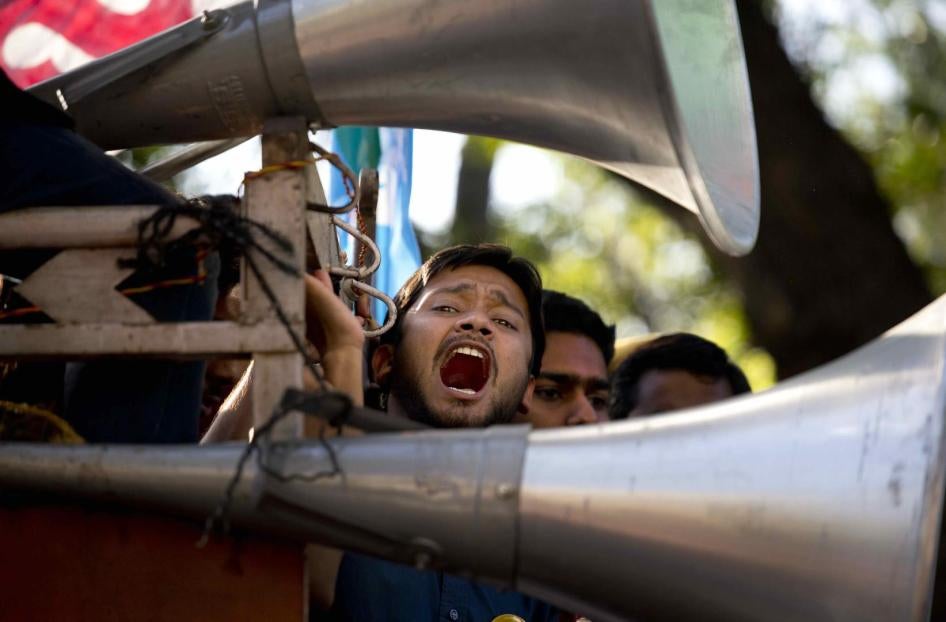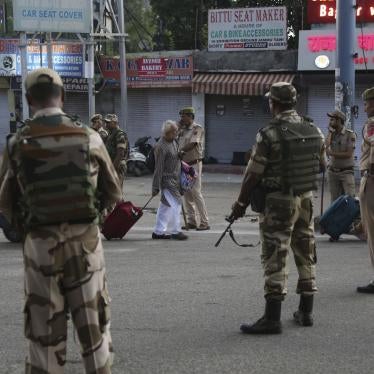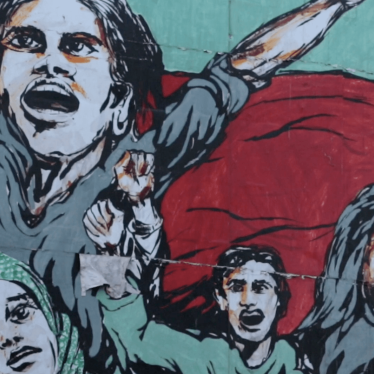The fable of the emperor with no clothes is telling in these times of scared silence. Hans Christian Andersen never did say what happened to the boy that shouted the truth. But in India, today, we know that the boy would have been swiftly hushed.
An entrenched culture of dissent in India is hard to stamp down. So, whether it is the decision to revoke the special constitutional status of Jammu and Kashmir, or to bring in the discriminatory Citizenship Amendment Bill, or indeed the rising cost of onions, people will write letters, send petitions and hold protests.
But if there is criticism these days, there is every chance that the mighty will take umbrage enough to denounce it, or even retaliate with vicious abuse of power.
When industrialist Rahul Bajaj recently described an environment of fear and intolerance, telling a group of BJP ministers, “if we want to openly criticise you, there is no confidence that you will appreciate that,” he also anticipated a pushback.
And it did follow. While some BJP leaders were quick to point out that just the fact that Bajaj spoke at all is evidence of the right to free expression, others said he was hurting “national interest.”
All too often, in this guise of national interest, Indian authorities have been trying to silence any sort of remonstration. So, no surprise, that after forcing divisive changes to the citizenship laws, Prime Minister Narendra Modi accused Opposition leaders of speaking the language of Pakistan. The government warned the media from reporting public discontent or anything that “promotes anti-national attitudes and/or contains anything affecting the integrity of the nation.”
A Clear Pattern
These warnings cannot be taken lightly because those who speak out against rights violations have already faced persecution. Activists have been held in preventive detention to stop them from organising protests, while critics of the government are accused of sedition, criminal defamation, or terrorism. The authorities have used financial audits and investigations against rights groups and media companies, and even used arbitrary measures like preventing people from traveling abroad to inform international opinion.
Hundreds remain arbitrarily detained in Kashmir to prevent protests. The government has also stopped several Kashmiri activists and political leaders from leaving the country, and apparently prepared lists of those to be restricted.
In August, Shah Faesal of the Jammu and Kashmir People’s Movement was prevented from leaving India and detained after he criticised government actions. In September, a Kashmiri journalist, Gowhar Geelani was prevented from traveling to Germany to take part in a training program organized by the international broadcaster Deutsche Welle. In October, a Kashmiri journalist and human rights activist, Bilal Bhat, said he had been stopped from boarding a flight to Malaysia. The government alleges that some of these people are “influencers,” “instigating” others against the country or could “create trouble” in the ongoing political transition in Kashmir.
The authorities have used the Foreign Contribution (Regulation) Act as a political tool to harass several well-respected organisations working to defend human rights, including Centre for Promotion of Social Concerns, Sabrang Trust, Navsarjan Trust, Act Now for Harmony and Democracy, NGO Hazards Centre, Indian Social Action Forum, and Amnesty International India. While it is appropriate to regulate and scrutinise finances to address corruption and legitimate national security concerns, the FCRA is too broad and unnecessarily infringes on efforts to address social issues in India.
The authorities conducted several raids in 2018 and 2019 on homes of activists and academics who have been vocal critics of the government and outspoken on human rights. In June, the Central Bureau of Investigation filed a criminal case against the Lawyers Collective for allegedly violating the FCRA and later raided their offices in Mumbai and New Delhi. The courts denied an official request to arrest the organization’s founders for custodial interrogation.
Nine prominent human rights activists have been in prison since 2018, held under a key counterterrorism law, the Unlawful Activities (Prevention) Act, accused of being members of a banned Maoist organisation and of inciting violent protests. One of their lawyers was among the 22 rights defenders that the social media company WhatsApp, owned by Facebook, confirmed were targeted by an Israeli surveillance software that the NSO Group maintains is only sold to government agencies around the world.
Activists and peaceful protesters are being accused of sedition. In October, police in Bihar state filed a case of sedition against 49 people, including well-known movie personalities, for writing an open letter to Prime Minister Narendra Modi expressing concerns over hate crimes and mob violence targeting minority communities. The authorities closed the case only after widespread public condemnation. In September, the police in Delhi filed a case of sedition against a political activist, Shehla Rashid, for criticising alleged army violations on Twitter. Investigations by Scroll.in found that over 10,000 members of Adivasi communities in Jharkhand have been accused of sedition and disturbing public order.
Media Curbs
The media are under pressure to self-censor or toe the government line. The authorities have used criminal defamation to target journalists and critics. In June, police arrested three journalists for posting the video of a woman claiming to be in love with the Uttar Pradesh state’s chief minister, accusing them of defaming him. In November, the authorities in Telangana filed a criminal complaint under the Unlawful Activities Act against a journalist known for his critical writing against the central and state governments.
A Manipuri journalist, Kishorechandra Wangkhem, was detained under the National Security Act in November 2018 for criticizing the prime minister and other officials on YouTube. And a British journalist, Aatish Taseer, wrote that his permanent visa status as a person of Indian origin – he was raised by a single mother who is an Indian national – was revoked because of his criticism of the Modi administration. In August, NDTV, an independent news network complained of a “complete subversion of media freedom,” after its founders were stopped from a week’s travel abroad by immigration authorities “on the basis of a fake and wholly unsubstantiated corruption case.”
Indian courts have repeatedly held that right to free speech “necessarily includes the right to criticise and dissent.” Under international law, as much as the right to freedom of expression is a fundamental right, it is also an “enabler” of other rights, including economic, social and cultural rights, as well as civil and political rights. The United Nations Special Rapporteur on freedom of expression has stated that “arbitrary use of criminal law to sanction legitimate expression constitutes one of the gravest forms of restriction to the right, as it not only creates a ‘chilling effect,’ but also leads to other human rights violations.”
The chilling effect is in force because dissent carries a very high price in India, from being labelled anti-national at risk of surveillance, arrests or raids, to being accused of terrorism. After the Bajaj outburst, Home Minister Amit Shah said that there is “no need for fear,” and while the government has done nothing to draw criticism, “if you say that there is a certain kind of atmosphere, we will have to make efforts to improve the atmosphere.”
That would be a good first step. Like the boy who called out the king and thus saved him further embarrassment, the authorities should realize that criticism can bring corrective action, and help improve the rights of all.










